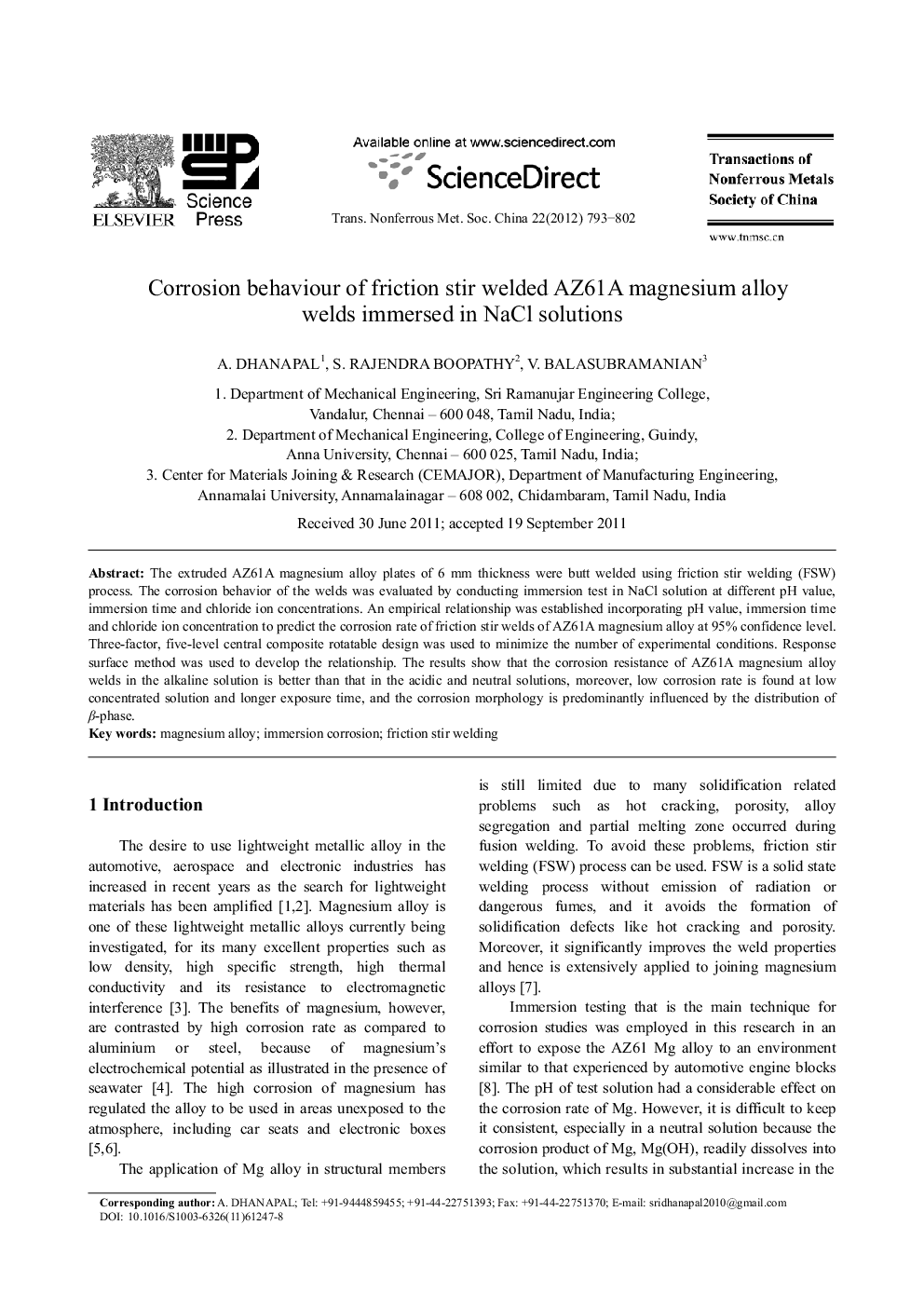| Article ID | Journal | Published Year | Pages | File Type |
|---|---|---|---|---|
| 1638301 | Transactions of Nonferrous Metals Society of China | 2012 | 10 Pages |
Abstract
The extruded AZ61A magnesium alloy plates of 6 mm thickness were butt welded using friction stir welding (FSW) process. The corrosion behavior of the welds was evaluated by conducting immersion test in NaCl solution at different pH value, immersion time and chloride ion concentrations. An empirical relationship was established incorporating pH value, immersion time and chloride ion concentration to predict the corrosion rate of friction stir welds of AZ61A magnesium alloy at 95% confidence level. Three-factor, five-level central composite rotatable design was used to minimize the number of experimental conditions. Response surface method was used to develop the relationship. The results show that the corrosion resistance of AZ61A magnesium alloy welds in the alkaline solution is better than that in the acidic and neutral solutions, moreover, low corrosion rate is found at low concentrated solution and longer exposure time, and the corrosion morphology is predominantly influenced by the distribution of β-phase.
Related Topics
Physical Sciences and Engineering
Materials Science
Metals and Alloys
Authors
A. DHANAPAL, S. RAJENDRA BOOPATHY, V. BALASUBRAMANIAN,
